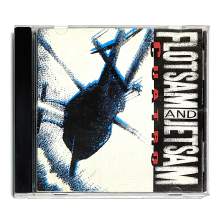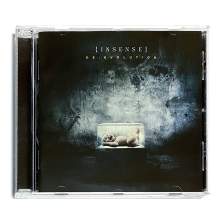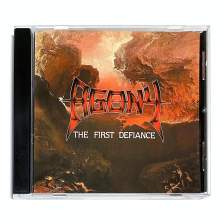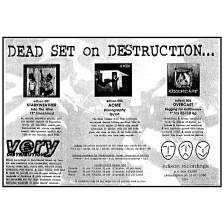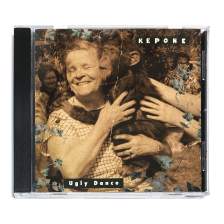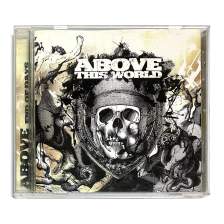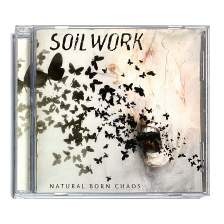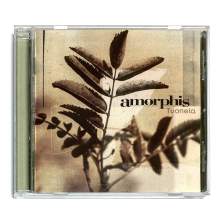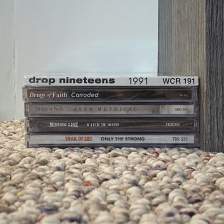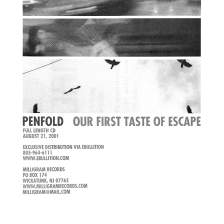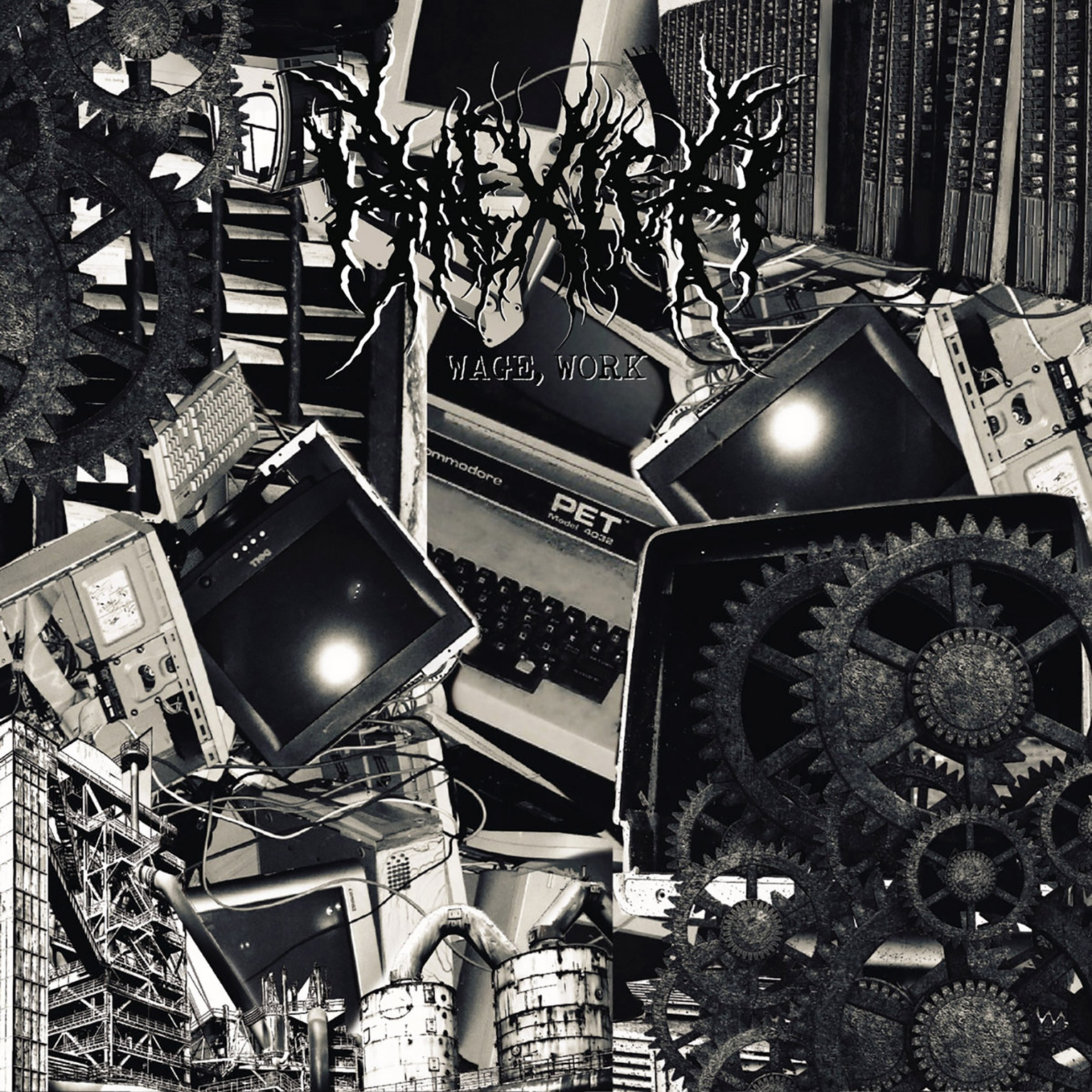
Wage, Work is the sophomore EP from socio-politically charged grinding powerviolence group Haexler, out of Leipzig, Germany. Focusing on a firmly anti-capitalist stance, this particular outing trounces through 13 songs in just over a mere nine minutes, adding a dash of HM-2-esque gristle to its destructively high-speed and forceful attack that retains tangible undercurrents of its hardcore/punk influences—both musically and in terms of its emphasis on message/meaning.
This discussion actually took place back in November, but was held due to pressing delays related to the CD (out now courtesy of EveryDayHate)—which is of course my preferred format! So, stream Wage, Work below while you learn a bit more about Haexler and the band's intentions...
Wage, Work is a concept EP dealing with capitalism, and I find it interesting that in your description of the material, you admit the "impossibility of escaping [the cycle of capitalism] for any length of time," but also assert that, "Another world is possible!" Obviously you're far from apathetic, but this suggests to me that you're not necessarily subscribing to a CrimethInc.-esque means of circumventing "the system" either. How do you view and/or make peace with this unavoidable participation while still striving for a better way?
Hi! First of all, we would like to thank you for the really good and thoughtful questions, that is a very special pleasure for us! For the sake of transparency, it should be noted that the answers come from our singer, Daniel, even though the whole band has approved them!
The question you raise here is very complex, and one could certainly talk about it for hours and still not be at the end. On a very personal note, I will say very briefly that I cannot make peace with life in global capitalism, and do not believe that I can ever find complete happiness within this existing system, as everything that surrounds us is riddled with it. And the bad thing is that the more I learn, the more I become aware of this fact.
I can't claim to be a particular CrimethInc. expert, especially since the individual groups are relatively different, if I'm not mistaken. I often have to remind myself that the capitalist economic and social order is man-made and not a law of nature, and therefore it is not impossible to change it. Without this thought, I would certainly be much worse off. And even if these are hard times for the left movement—and I'm talking primarily about the left movement in Germany—as history has shown: "There are decades where nothing happens; and there are weeks where decades happen".
But this requires various things—common organization and education are only two of them. Building networks of solidarity and places that try to escape the logic of exploitation, for example, is an important step, but in order to act socially in the long-term in an effective way, the relations of production must be changed, and for this one must seek organization with the people who live in them—and, in a sense, that is everyone. So, my current way is to earn money for rent and food as harmlessly as possible, and in the remaining time to be politically active, to do educational work, to take time for dear people... and of course to be artistically active somehow... in the full knowledge that you probably won't reach the masses with powerviolence [laughs]. I think of those contradictions nearly every day, and frankly I'm not sure if it's the right way. How could I be? But, for the moment, it's okay, and we'll see what the future brings.
All of the samples on the EP were lifted from Peaky Blinders, which I've never seen, but apparently a portion of your inspiration came from the fact that you feel a character on the show tends to be "memeified" for misinterpreted purposes. Is that something you'd care to address more specifically?
I wouldn't say that's where the inspiration came from, it was more that a lot of things came together! The possibility to use atmospheric and thematically appropriate—as well as simply beautiful-sounding—samples was first in the foreground. That it fits so well is certainly also due to the fact that the series depicts the development of working life in the industrializing England of the early 20th century in all its misery, and you quickly notice that the basic mechanisms are still the same. The fact that the main character of Thomas Shelby, in particular, is now portrayed by the operators of various mindset and life coach channels on social media as an ideal to strive for in their share-pics was in a sense the cherry on top, and somehow a good link to bridge the gap in terms of content from the "classic" working world to the nowadays startup hustle culture.
This is somewhat of a "pattern" compared to your debut EP, Blankness, Bleakness—both with the format of the title, and that all of those samples came from Downton Abbey. Wage, Work has moved on from one-word song titles, however, and the compositions are ever-so-slightly shorter/even more direct. Do you feel like any of these thematic motifs will always be reflected in your output, or has it just felt right thus far?
I'm very happy that this was noticed, because I'm a big fan of red threads myself and one reason for the sample selection was to be able to continue that way. That the songs have become shorter was actually a goal of ours, looking back at our first EP from 2020, which were the first steps in this genre for all of us, then still had one or the other length [laughs]. In fact, I just do not want to make any statements about the future yet, so your second variant definitely applies: up to this point, it has been a lot of fun to work with thematic motifs, and I myself am curious where our development will go from there!
As illustrated by Wage, Work, something that I see from the grind scene more than any other is record labels joining forces en masse. What has it been like to cooperate with an international network of 15 different labels across three formats for this release?
It was definitely an experiment for us, and we are very grateful to all the labels involved for their support, and very happy with how everything worked out in the end. We were in the studio in April of 2021 and finally in October of 2021 the mix and master were finished. Our goal was to get the support of one or two labels from countries other than Germany, simply to spread the music a little wider and possibly make direct contacts to be able to tour a little after Covid-19.
The fact that finally 15 labels from nine countries have agreed to support us is a great honor, and has far exceeded our expectations. But, of course, it is also a big communication effort—every decision has to be approved by many heads, everyone does this only in their spare time, and things sometimes take longer. But, looking back, we can say that the whole effort was really worth it.
It's also refreshing in 2022—as attention spans continue to decline and the internet is not always the source of "connection" it is so often purported to be—that Haexler is so encouraging of listeners to not simply read the lyrics, but reach out and discuss them with the band. Talk about why that's so important to you, and how often listeners take you up on such an opportunity.
Since we all come from the D.I.Y. hardcore/punk scene, making "more than music" has always been a central principle: the music is unthinkable for me without the content. Our music is also a political form of expression, and political lyrics—whether set to music or not—are useless if they are not read. Personally, in my teenage years, a lot of lyrics inspired me to be more involved with certain issues, and for me it was the greatest thing when a song had even two lines of liner notes written down for a bit of context, even if I didn't always share everything about it 100%. It's important for us to take a clear stance, not least because there are also some black sheep in the grind scene that we definitely don't want to be lumped in with.
The EP is listened to by more people than those who end up with a record or a CD with a lyric sheet, and as you rightly said, music is also listened to more on-the-go or on the side. So, if you want to be "understood," it's only logical to make it as easy as possible—especially if the vocals are designed in such a way that many people don't easily understand the lyrics, and it's a special challenge to write lyrics at all due to the shortness and structure of the songs. A clearly recognizable thematic concept combined with an openly accessible explanatory text was definitely an idea to get people interested in the topics.
But, of course, the whole thing is not a one-way street, our wisdom is definitely not infinite (or, as we say in Germany: we haven't eaten wisdom with spoons). We learn every day and are happy about every person who deals with it and shares their views and experiences with us. Especially since we can only represent one perspective firsthand—namely a male, white, Central European one—and while we all suffer from the constraints of capitalism, not all of us suffer exactly the same. In fact, it's been quite rare for people to write us messages in response, but after and before concerts it happens quite often, and it's a very good way to get into conversation with each other and network.
So, if you want to: listen to our EP, read the lyrics and text, set up a show or whatever. We're happy to come to every place we are invited to!
***
As mentioned above, Wage, Work is out now across a whopping 15 different labels. Grab a CD from EveryDayHate, or digital direct through the band itself. In terms of other formats available online, you can score a tape through Home Mort, or a one-sided 12" via Fire and Flames or Rip Roaring Shit Storm. I'm sure you can also email the band for additional information. Find Haexler on Facebook, and read the lyrics and insights behind Wage, Work in either English or German.

